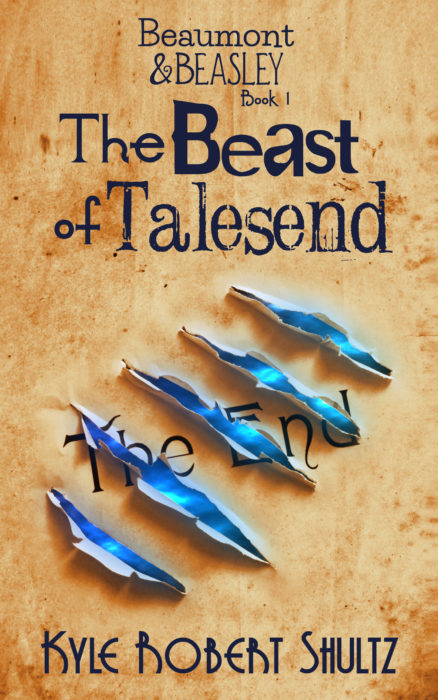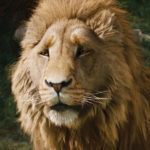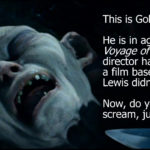The Wonder of It All
Why is speculative fiction such an ancient and enduring genre?
It can be argued that the modern concepts of science fiction and fantasy didn’t actually come to exist until a couple of centuries ago. But if we expand the definition of speculative fiction to include myths, legends, and fairy tales, we’re left with a body of work that stretches far into the past. Throughout time, there have always been people who enjoyed creating and hearing stories about things beyond the ordinary realm–heroes, monsters, mystical realms, and so on. This is because all people are designed to desire and seek out wonder.
At a very basic level, we want there to be something more to this universe; something that makes us draw in our breath and feel a rush of exhilaration.
Within the context of the Christian worldview, of course, this makes perfect sense.
This week we feature Kyle Robert Shultz and his novel The Beast of Talesend in Lorehaven Book Clubs. Stop by the flagship book club on Facebook to learn more about this story.
Subscribe to Lorehaven Magazine for free to download our new summer 2018 issue.
In his sermon entitled “The Weight of Glory,” C.S. Lewis used the German term Sehnsucht to label this impulse, and described it as a “desire for our own far-off country…the secret which hurts so much that you take your revenge on it by calling it names like Nostalgia and Romanticism and Adolescence.”
Even confirmed atheist Richard Dawkins once conceded during a debate that “when you consider the beauty of the world…you are naturally overwhelmed with a feeling of awe…of admiration, and you almost feel a desire to worship something.”
Our Creator intended for us to be drawn to Him. And out of all the tales of wonder that have accumulated over the centuries, the Bible stands apart as a book that reveals the true, ultimate source of wonder.
Because we live in a fallen world, however, this natural desire can be either deadened or subverted. Both hardship and greed can stifle the seeds that God has planted in our hearts, as Jesus said in Mark 4:19.
Sometimes, a dismissal of all things that transcend the physical world can manifest in a dislike for such elements in a fictional context. I’m not saying that everyone has to like speculative fiction, but I have noticed that people who utterly despise all forms of it often lead unhappy lives. Also, even if it is not snuffed out, the longing for wonder can be misdirected toward darker, harmful things. Stories that delve too deeply into the shadows without any flicker of light can be unhealthy to the reader’s soul.

“Kyle Robert Shultz creates an enchanting story world grounded in familiarity yet saturated with fairy-tale qualities. Add a distinctly British ambience and this story is primed to delight.” — Lorehaven Magazine
Nick Beasley, the main character of my novel The Beast of Talesend and its sequels, is someone who has given up on wonder because of the pain and abandonment he experienced in his childhood. Though he lives in world where fairy tales are true history and magic is hidden in plain sight, he chooses to find rationalistic explanations for everything. Lord Whitlock, the story’s villain, is obsessed with harnessing dark forces to increase his own power. Each of them embodies a way in which the desire for wonder can be derailed.
Nick’s journey toward believing in fairy tales (meant to mirror a path to salvation), and his victory over a darkness that threatens to take everything from him, is of deep personal significance to me. Writing the book was an act of reclaiming wonder and hope in my life after tragedy nearly crushed it. Not long after I developed the basic story concept that would one day become The Beast of Talesend, my uncle Don suddenly passed away in a car accident. We were very close, and the loss was devastating. I never actually turned away from my Christian faith during this time, but for a year after the tragedy, I couldn’t bring myself to write anything.
However, with God’s help, I eventually reached the point where I could create stories again—and Don had a profound influence on the book I chose to write. Nick is the kind of person my uncle always sought to reach with the Gospel. He had a heart for those who had distanced themselves from God but sorely needed Him. Don kept wonder alive in my life in so many ways while he was here. Writing fantastical, uplifting stories is one of the ways in which I try to honor his legacy.
Tales of wonder make us happy, and not just because they’re “escapism.” The best of these stories bring us closer to the One who placed Sehnsucht in our hearts—even, ironically, in some cases when they’re written by people who don’t believe in God. One of the most “Christian” quotes I know of in the speculative genre comes from Doctor Who’s River Song, as penned by atheist Steven Moffat:
“Goodness is not goodness that seeks advantage. Good is good in the final hour, in the deepest pit, without hope, without witness, without reward. Virtue is only virtue in extremis.”
As Christian fans of the speculative genre, we have a unique opportunity to guide the way from the signposts of fictional wonder to the truth of the One whose name is Wonderful (Isaiah 9:6). Fairy tales may not be real—not in this world, at least—but He is. And thanks to Him, our story never has to end.
“Kyle Robert Shultz creates an enchanting story world grounded in familiarity yet saturated with fairy-tale qualities. Add a distinctly British ambience and this story is primed to delight.”
— Lorehaven MagazineExplore Kyle Robert Shultz’s novel The Beast of Talesend in the Lorehaven Library.
Read our full review exclusively from the spring 2018 issue of Lorehaven Magazine!










































Kyle, this is so beautiful! Thank you so much for sharing your thoughts and the story behind your stories. Very thought provoking and inspiring.
Thanks! 🙂